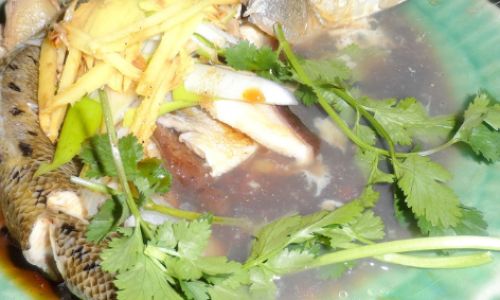Cooking duck meat can be a delightful culinary experience, offering a rich, succulent flavor that is cherished in many cuisines worldwide. From Peking Duck to Duck Confit, the versatility of duck as an ingredient knows no bounds. However, one common challenge that chefs and home cooks alike may encounter is the persistent fishy odor that sometimes lingers in cooked duck meat, despite meticulous preparation. This article delves into the reasons behind this phenomenon, explores various strategies to eliminate or minimize the fishy taste and odor, and provides culinary insights to enhance the overall flavor profile of duck dishes.
Understanding the Source of the Fishy Odor
Before tackling the issue, it’s crucial to understand the potential sources of the fishy odor in cooked duck meat. Several factors can contribute to this unwanted aroma:
-
Diet and Feed of the Ducks: Ducks that are fed a diet rich in fishmeal or other aquatic byproducts may inherently possess a stronger fishy flavor. This is particularly true in commercial farming practices where cost-effective feed formulations are used.
-
Age and Breed of the Duck: Younger ducks tend to have a lighter flavor profile compared to older ones. Additionally, certain breeds of ducks may naturally have a more pronounced fishy taste due to genetic predisposition or environmental factors.

-
Handling and Storage: Poor handling practices or improper storage conditions can lead to the development of off-flavors. Contamination with bacteria or exposure to oxygen can exacerbate the fishy aroma.
-
Cooking Techniques: Incorrect cooking methods, such as overcooking or undercooking, can also bring out unwanted flavors. Improper seasoning or the use of incompatible ingredients can mask or enhance the fishy taste.
Strategies to Eliminate or Minimize the Fishy Odor
Addressing the fishy odor in cooked duck meat requires a multi-faceted approach. Here are some effective strategies:
-
Source Selection:
- Choose the Right Duck: Opt for ducks raised on a diet free from fishmeal and other aquatic ingredients. Free-range or organic ducks often have a cleaner, more natural flavor.
- Age and Breed: Select ducks that are of appropriate age and breed known for their mild flavor. Older ducks may require longer cooking times and stronger seasoning to balance their flavor.
-
Proper Handling and Storage:
- Freshness is Key: Always purchase fresh duck meat from reputable sources. Avoid frozen ducks unless they have been properly vacuum-packed and stored at the correct temperature.
- Storage Conditions: Store duck meat in an airtight container in the coldest part of your refrigerator. Use within a few days of purchase for optimal freshness.
-
Marinating and Seasoning:
- Marinades: Use acidic marinades such as lemon juice, vinegar, or wine to help neutralize the fishy flavor. These acids break down proteins and help mask unwanted odors.
- Herbs and Spices: Incorporate strong-flavored herbs and spices like garlic, ginger, rosemary, thyme, and bay leaves. These not only enhance the duck’s flavor but also help cover up any lingering fishy aroma.
- Brining: Brining the duck in a saltwater solution can draw out impurities and help balance the flavor. Be sure to rinse the duck thoroughly after brining to remove excess salt.
-
Cooking Techniques:
- Slow Cooking: Slow cooking methods such as braising or stewing allow the duck meat to tenderize and develop a richer, more complex flavor. This can help mask the fishy taste.
- Searing: Properly sear the duck skin before cooking to create a crispy exterior that locks in juices and adds a layer of flavor. This also helps reduce any unwanted odors.
- Finishing Touches: Add a splash of wine, broth, or citrus juice towards the end of cooking to freshen up the dish and further counteract any fishy notes.
-
Post-Cooking Adjustments:
- Sauces and Glazes: Serve the duck with a robust sauce or glaze that complements its flavor. Soy sauce, hoisin sauce, honey, or a blend of fruits and spices can all add depth and balance to the dish.
- Garnishes: Use fresh herbs, citrus zest, or pickled vegetables as garnishes to lift the dish and distract from any lingering fishy flavors.
Culinary Insights for Enhancing Duck Dishes
Beyond addressing the fishy odor, there are numerous culinary techniques and recipes that can elevate duck dishes to new heights. Here are some insights and ideas:
-
Duck Confit: This classic French preparation involves slow-cooking duck legs in their own fat until tender and flavorful. The rich, confit texture pairs beautifully with a variety of dishes, from salads to pasta.

-
Duck Prosciutto: Similar to Italian prosciutto, duck prosciutto is thinly sliced and served raw or gently heated. It adds a luxurious touch to appetizers, sandwiches, and pasta dishes.
-
Duck Ragu: A hearty, meat-based sauce that can be served over pasta or polenta. The slow cooking process allows the duck meat to break down and meld with tomatoes, onions, garlic, and red wine, creating a deeply flavorful dish.
-
Duck and Fruit Combinations: Ducks pair wonderfully with fruits like cherries, apples, and figs. These fruits add a natural sweetness and acidity that balances the duck’s richness.
-
Duck Fat Roasted Vegetables: Save the duck fat from cooking and use it to roast vegetables. The rich, savory flavor of the fat enhances the natural sweetness of carrots, potatoes, and Brussels sprouts.
-
Duck Stock: Making your own duck stock from bones and scraps can add immense flavor to soups, stews, and risottos. It’s a great way to utilize every part of the duck and create a foundation for delicious dishes.
-
Duck and Cheese Pairings: Duck dishes can be elevated with the addition of creamy, flavorful cheeses like blue cheese, brie, or goat cheese. These cheeses add a tangy, creamy contrast to the duck’s rich texture.
Conclusion
The fishy odor in cooked duck meat can be a frustrating challenge, but with the right strategies and culinary techniques, it can be effectively minimized or eliminated. By selecting high-quality ducks, handling and storing them properly, using effective marinades and seasonings, and employing thoughtful cooking methods, you can transform duck meat into a delightful, flavorful dish. Moreover, exploring different recipes and culinary insights can help you unlock the full potential of duck as an ingredient, creating memorable meals that are sure to impress.
Remember, cooking duck is an art that requires patience, attention to detail, and a willingness to experiment. With each attempt, you’ll gain a deeper understanding of this versatile meat and develop your own unique approach to crafting delicious duck dishes. So, don’t let a little fishy odor deter you from enjoying the culinary wonders that duck meat can offer. Happy cooking!






0 comments